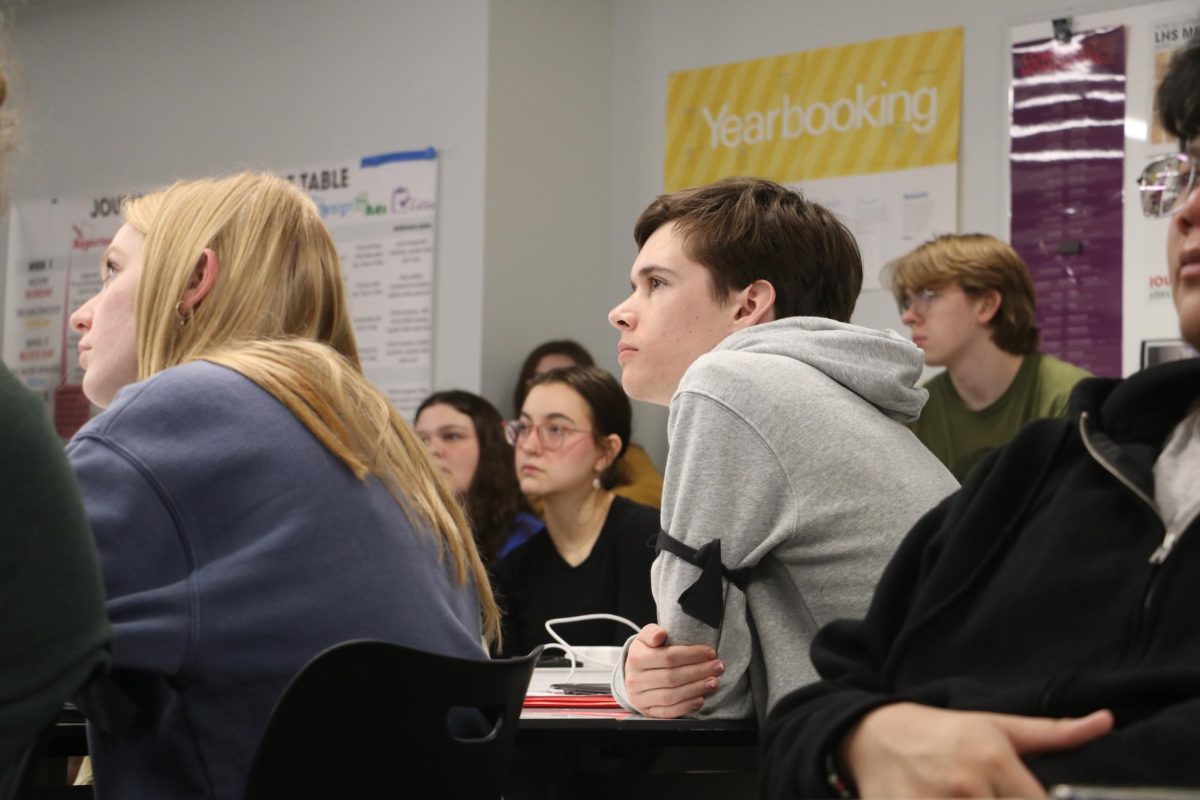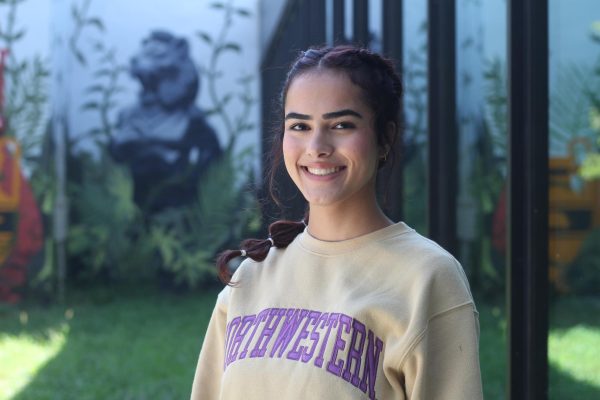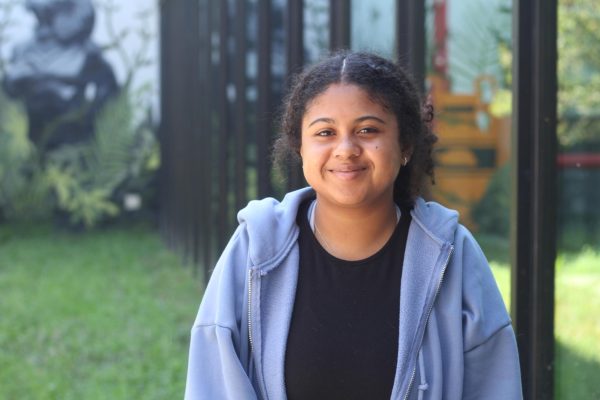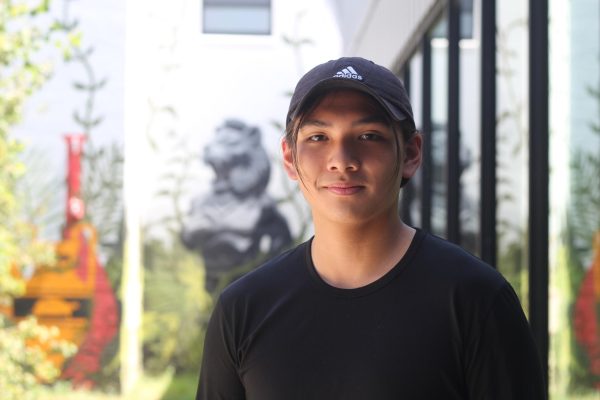We have spent the past four years learning about our free press rights. And we have spent the past five months fighting against a system that threatened them.
Last week, our school district finally agreed to support our fight against invasive software that we believe violates our rights by widely reviewing student work.
Superintendent Anthony Lewis said the district has found a solution that would allow the work of student journalists to be exempt from AI and human monitoring. And while he said any solution must prioritize the “safety and well-being of all our scholars,” he noted in an email, “You made a compelling case, and I appreciate your advocacy efforts and your willingness to discuss with us differing perspectives on these issues.”
Start of concerns
In August, USD 497 purchased services from a company called Gaggle. It uses AI to scan all USD 497 students’ Google Suite accounts, including Google Docs and Gmail. Gaggle, a corporation based in Dallas, caters to school districts’ concerns about mental health. It claims to help prevent self-harm and suicide by detecting when students are writing about sensitive topics on school accounts. It also scans for pornographic images and other sexual content. USD 497 will pay $162,000 for the service over three years.

A few days before we knew Gaggle was about to go live on student accounts in November, The Budget reported on a suspected gun brought to our campus. Our analysis of the principal’s response — though positive — made us concerned about the imminent reality of a software that would scan all of our unpublished notes and then possibly put them in the hands of school administrators. The police raid of the Marion County Record newsroom was fresh in our minds, and we knew our work needed protections.
The courts have long recognized that protecting the free press is about more than just allowing or preventing a single story from being published. The practice of journalism must be protected from start to finish. Sources who speak to us are sometimes critical of how a teacher, principal or district administrator handles an issue. If they ask to speak off the record, they should be able to do so without fear of being exposed. The Budget is known for its tough reporting — reporting that only happens when the process is protected.
Concerns grow
After Gaggle was implemented in November, our concerns grew.
Dozens of art students were called to their principals’ offices in December after their images were flagged by Gaggle for alleged nudity. At the time, building administrators couldn’t even view the images in question. The students were asked if they knew of anything in their Google Drive that Gaggle might have considered sensitive, and then sent back to class confused and worried.
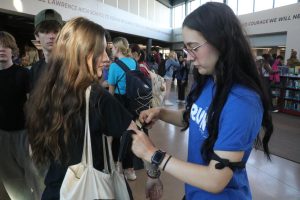
Worse, the images had already been removed from the students’ accounts by Gaggle, and they had no idea how to get them back. Using backups of their work, some students were later able to determine which images had been removed. They were puzzled as to how photographs that wouldn’t even violate the school’s dress code had been flagged. It was only after complaints from us and teachers that students had their images returned to them four months later.
Making the case
We met with our school principal to discuss our concerns: we believed the use of Gaggle was violating the First Amendment, the Kansas Shield Law and the Kansas Student Publications Act by scanning journalism documents. On our school accounts, monitored by Gaggle, we write questions, transcribe interviews and draft stories. When both a third party and school administrators can see our documents, that raises serious concerns.
Our concerns for student journalists — and the rest of the student body — have only grown as we’ve learned more. Among them:
- Gaggle scans files not owned by a school account, which we discovered when an essay owned by a personal account was scanned by Gaggle after being edited by a peer on their school account.
- Gaggle scans files owned by teachers if students write on or edit them.
- Gaggle stops emails from being delivered if they are flagged, which could delay messages from students seeking help.
Our principal recommended we follow up with the district’s technology department. We tried. For a variety of reasons, that meeting didn’t happen until March 6.
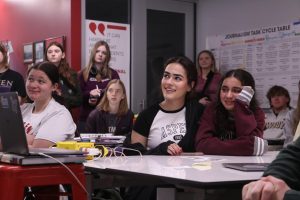
By that time, we had grown increasingly alarmed at how Gaggle was working. Gaggle triggered a review of more documents than we initially anticipated. Last month, Superintendent Anthony Lewis told us Gaggle had reviewed more than 11 million student items since being launched — far more than they could have with any previous system. Talking to the Student Press Law Center, a non-profit organization that supports student journalists, confirmed we were right to be concerned.
At the March 6 meeting, the district had six of its top administrators present, including Superintendent Lewis, as well as an attorney with the Kansas Association of School Boards.
We laid out our legal concerns and asked the district to stop monitoring the journalism staff’s shared Google Drive. In response, administrators emphasized their belief that Gaggle saves lives.
Some expressed concerns we were prioritizing the free press over the mental health of our peers.
Schools have very real fears around the mental health crisis facing our generation. It’s tempting to hope new technology can fix those issues. But diminishing the rights of students also limits their ability to be part of the solution. A new phrase has entered our vocabulary: “You’ve been Gaggled.” Any time a company’s name is synonymous with words like censored and surveilled, we think it’s a problem.
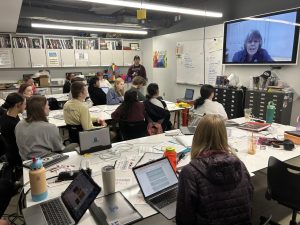
As student journalists, much of the work we do surrounds mental health. Often, we have been the first people to “see something, say something” — empowered to do so as students who have learned, through journalism, that our voices matter.
Next steps
When we met again on March 29, district administrators proposed a solution. We were offered the opportunity to switch our journalism operations to Microsoft 365 to avoid Gaggle scanning. Such a change would be deeply disruptive to our work in a way that would severely limit our capabilities.
Meanwhile, concerns that our legal rights were being violated were promptly dismissed during that meeting. David Cunningham, an attorney with the Kansas Association of School Boards, told us he didn’t believe our arguments had merit.
We had hoped to have an attorney from the Student Press Law Center available to answer questions about our arguments but we were told there was “no need” for their presence.
Then things changed.
A week later, we received word that the district would work to remove journalism students from Gaggle’s monitoring.

We are still in the process of implementing this. We need to make sure the district and Gaggle can’t see any of the journalism work product at either high school. We’ll soon begin meeting with the district’s policy committee to ensure these protections extend beyond Gaggle and into the future.
Advice for others
While we believe we are among the first student journalists to raise these concerns around a program like Gaggle, we will not be the last. Although we think we’ve arrived at a solution, it took five months of work. It was worth the fight, and we have advice for the next group of student journalists to face issues like these:
Be alert. Gaggle is one of several edtech companies offering similar services, and it scans the work of millions of students. Like us, many students are from states that have New Voices legislation protecting the free press rights of students.
Know that the issues extend beyond the First Amendment. We believe Gaggle can violate students’ Fourth Amendment rights to be protected from unreasonable searches and seizures by the government. Students have fewer privacy protections in school, but Gaggle compromises student privacy on an unprecedented level.
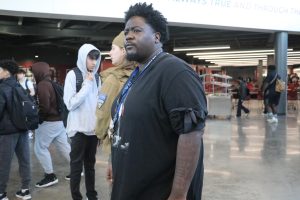
Ask tough questions. People in authority can violate your rights while believing they are protecting you. It is up to you to protect your work process and product. Adults didn’t tell us to fight the good fight. We did it ourselves.
Get support. Among our allies was student rights icon Mary Beth Tinker. In 1969, the Supreme Court said a Des Moines school district had violated the rights of Tinker, her brother and others when it suspended them for wearing black armbands to school to protest the Vietnam War. Since then, black armbands have nationally symbolized student protest for First Amendment violations. At least 320 students, teachers and staff at Lawrence High and Free State wore black armbands in support while we met with district administrators. When we talked to Tinker a few days later, she reminded us that we were fighting the good fight — not only for ourselves, but for student journalists everywhere.
We hope future journalists will take up this cause after we’ve graduated. And we hope members of our community will continue to ask questions about Gaggle and how it’s being used in our schools.
To all the other schools around the country that also use Gaggle or similar programs: be warned and be aware of your rights. We are not the only journalism program that is being scanned and monitored. You can count us as your first allies.





